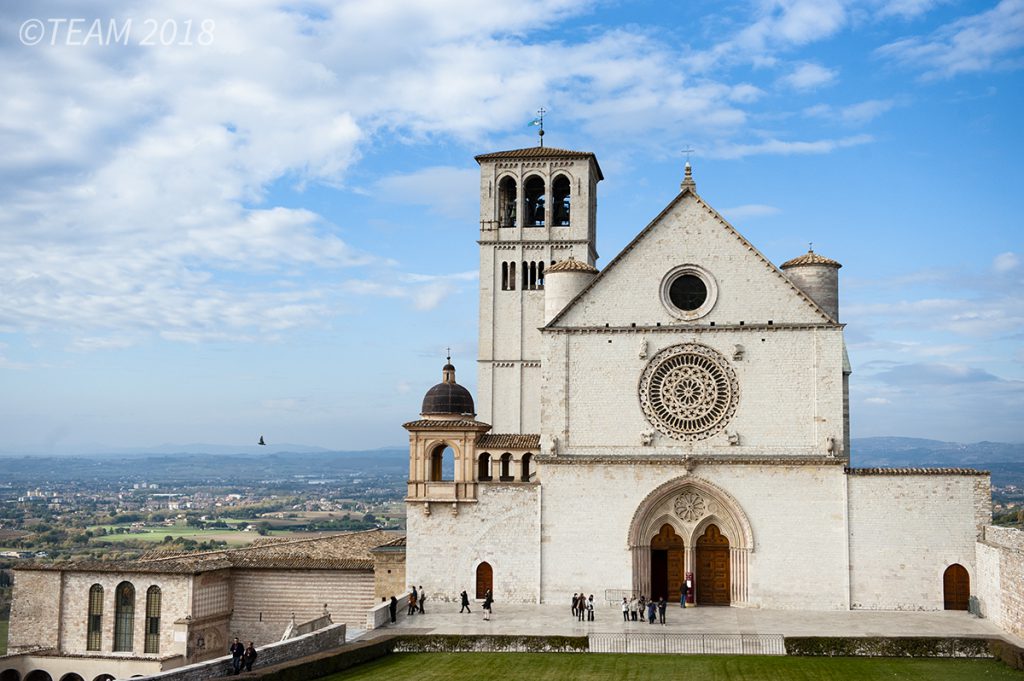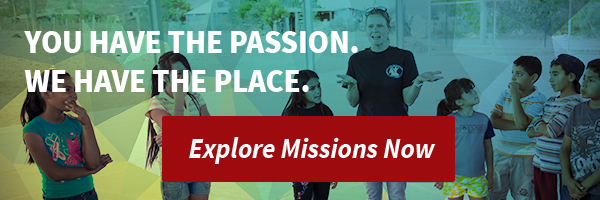
Ministry Updates
From Basketball Drills to Bible Studies
June 17, 2019
by admin

Rico and Carmelo may have been cousins, but they could hardly be more different. Where Rico was quiet and serious, Carmelo always had something to say — and it was often a joke.
But they did share two things in common: a love of basketball and a longing for real answers about their faith.
Like most Italians, the boys grew up in the Catholic Church. It was a critical part of their culture. But when a kid asked their priests questions, they were often met with a similar refrain: You don’t need to be thinking about that.
Thankfully, friends like you sent the boys to a Push the Rock (PTR) basketball camp. And when these cousins got their answers, it changed their lives.
Basketball Camp for Seekers
Push the Rock isn’t just any basketball camp. Coaches come all the way from America to teach young Italians their favorite tricks and techniques. Many of them even stay in touch with campers after the program ends.

Kids in Italy come to Push the Rock basketball camp for all kinds of reasons. But once they’re there, they build relationships with coaches that last longer than the camps.
But when Rico attended PTR his second year, it was clear he wasn’t just interested in basketball.
Every day, teachers at the camp would share a lesson about God. Then, the kids would break into discussion groups led by teachers and coaches. That year, Rico was put in TEAM missionary Gene Coleman’s group.
“[Rico] would never lose eye contact,” Gene says. “He was always watching, listening.”
The boy had a lot of questions about what things meant. So, toward the end of the week, Gene asked Rico if he’d like to study the Bible together.
“Yeah,” Rico said. “I really would.”
Quiet Cousin Embraces Christ
When PTR ended, Rico and Gene started studying the Gospel of John together. Through the support of friends like you, Gene got to explain the Gospel from many angles.
“I wanted to make sure he did it because he felt a need as a sinner instead of just doing it because he wanted to be like the coaches,” Gene says.
Rico was so quiet, it was hard to know his thoughts. The two studied together for months. But one day, Rico told Gene that he had decided to trust Christ.
Meanwhile, God started working in Rico’s cousin, Carmelo.
A Safe Place for Questions
That next summer, Carmelo attended PTR, too. He was always fooling around with the other kids, but one day he approached Gene looking devastated.
One of the American coaches had shared their testimony, and Carmelo couldn’t get over it.
Carmelo had heard about Gene’s Bible study with Rico. He wondered if Gene would be willing to study the Bible with him, too.
So, when PTR ended, Gene started a weekly study with Carmelo.

God used the time at basketball camp, and missionaries leading the basketball camp, to change Carmelo’s life.
Where Rico was quiet, Carmelo always had questions: Why did Jesus do miracles for some and not for others? Were they really miracles? Why do even little sins keep us from God?
In Carmelo’s church, questions weren’t really allowed. But Bible study with Gene was different.
For the first time, Carmelo could ask all the questions he wanted — and Gene never scolded him for it. It was wonderful.
But Gene knew things wouldn’t be so easy outside their Bible study. And he wanted to make sure Carmelo was ready.
Second Cousin Chooses Christ Over Culture
It can be hard for non-Italians to understand how much Catholicism is wrapped up in Italian culture. It’s not just tradition. Even if you don’t really believe it, it’s an essential part of an Italian’s being.
“If you’re Catholic, you’re Italian, and if you’re Italian, you’re Catholic,” Gene says.

Catholicism has been the dominant religion in Italy for so long, it feels like an integral part of the culture. And that makes it harder for Italians to accept grace through faith.
While Gene ministered to Carmelo, local Italian believers ministered to Carmelo’s mom, Gianella. And it seemed like she agreed with everything they said — what Jesus had done, that salvation comes through faith.
Still, Gianella couldn’t accept that free salvation for herself. When one of the Christians asked her why, she said, “If I did, I would lose most of my culture.” Not only that, but Gianella feared her friends might leave her.
Gene wanted to be sure Carmelo fully understood the costs of following Christ.
“It’s going to be difficult,” Gene told Carmelo. “You’re not just accepting Christ to have peace in your heart. … You’re accepting Christ because Jesus died for you.”
Gene and Carmelo studied together for over a year.
Then one day, Carmelo burst through Gene’s door with an announcement: “I’m convinced. I want to accept Jesus as my Savior and Lord.”
Pray for Summer Sports Camps
This summer, TEAM missionaries are gearing up to share Christ with even more kids at Push the Rock. And thanks to the generous support of friends like you, they’ll be able to follow up with kids who want to know more about Christ.
Please ask God to open more doors for Bible studies with kids like Rico and Carmelo. Pray that many children will come to know Jesus through this special program.
*The names of people you helped may be changed to protect their privacy.
If you love sports, God can use you to reach athletes like Carmelo and Rico — not just in Italy, but around the world. Discover how you can coach basketball, coach soccer, teach Christian yoga, captain a sailboat and more! Just search for “sports and recreation” on our opportunities page today.
Related articles



